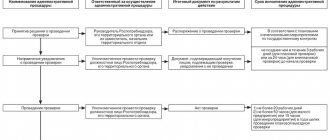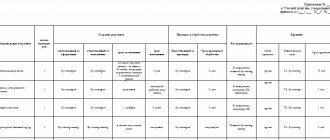Photo from the website www.coinfox.ru On December 14, a coordination plan for inspections for the second half of 2021 was published on the website of the State Control Committee. Most likely, the latter: no such plans will be formed for the first and second half of 2021. Despite the envisaged waiver of planned control, announced in Decree No. 376, inspections still remain - only now they will be random. We took a comment from a lawyer on how to interpret this.
We also made a selection of materials on the topic: what you need to know about inspections and how to behave during them, as well as how this will be affected by the changes outlined in recently released legislative documents.
— It used to be like this: Decree No. 510 approved the criteria by which companies were classified as risk groups.
Companies from a high risk group could be inspected once a year, from a medium risk group - once every 3 years, and from a low risk group - once every 5 years. Alexander Meleshkevich Lawyer at the REVERA law office
Now inspections have become random: in order to appoint one, the supervisory authority needs:
- Have objective information about the high risk of violations of the law. The methodology for forming a risk assessment system will be approved by the Council of Ministers
- Not be able to identify or eliminate these violations without conducting an inspection
That is, in essence, the plan remains, but it is more likely not a plan, but a list of companies selected for inspection. It is formed so that companies know about the inspection in advance and are prepared for it.
Functions of the Prosecutor General's Office of the Russian Federation and the consolidated inspection plan
The Prosecutor's Office of the Russian Federation is a system of supervisory bodies designed to monitor whether their activities comply with the norms of current legislation:
- executive authorities at the federal level;
- legislative and executive authorities of the constituent entities of the Russian Federation;
- local government bodies, military administration, control bodies and officials of all listed bodies;
- management bodies and heads of legal entities;
- bodies conducting operational investigative activities, carrying out inquiries and investigations;
- bailiffs;
- administration of places of execution of punishments.
Thus, the prosecutor's office, in particular, monitors the legality of the actions of state control bodies when conducting inspections of taxpayers regarding the conduct of their activities within the framework of the requirements established by law. The basic requirements for the procedures for such inspections are contained in the Law “On the Protection of the Rights of Legal Entities and Individual Entrepreneurs...” dated December 26, 2008 No. 294-FZ.
By virtue of the provisions of this law (Article 9), regulatory government agencies annually submit their inspection plans to the prosecutor’s office for approval. The agreed upon versions of plans are compiled by the prosecutor's office into a single document and, before December 1 of the year preceding the one for which the plan is being formed, are sent to the Prosecutor General's Office of the Russian Federation, whose task is to create a single consolidated plan. The Prosecutor General's Office must post this unified consolidated inspection plan on its website no later than the beginning of the year of its application. The inspection plan for 2021 formed by the Prosecutor General’s Office is no exception.
To find out where, in addition to the website of the Prosecutor General’s Office, you can see the plan of inspections carried out by the labor inspectorate, read the publication “Plan of inspections by the labor inspectorate for 2021 - where to look?”.
System of control measures in 2018
Tax audits by Federal Tax Service inspectors are carried out in accordance with the rules and regulations for monitoring the activities of enterprises and entrepreneurs. The inspection plan, including tax inspections, should not include individual entrepreneurs or organizations that have been subject to inspection over the past 3 years, with some exceptions. It is worth noting that the final document, which will contain information about the inspection object, must include the following data:
- full name of the organization, individual entrepreneur according to the constituent documents;
- real location of the controlled object;
- the purpose of the scheduled inspection;
- the time that this tax audit will take, but it cannot exceed a full 20 working days;
- full name of the tax control body that will carry out control activities.
As for exceptions for enterprises and individual entrepreneurs where an audit can be carried out, the decree, which limits inspections at small business facilities, does not apply to some of them. We are talking about those legal entities and individual entrepreneurs where violations were previously recorded that resulted in:
- administrative fines;
- suspension of business activities;
- suspension of license.
In any case, during a scheduled tax audit, all rules and regulations must be observed. If violations are detected on the part of the inspectors, the results of the control actions may be challenged and cancelled. Most often, the results of control actions are considered invalid in the following cases:
- the audit was initiated without any specific grounds, which are specified in the legislative acts of the Russian Federation;
- low level of qualifications of inspectors who do not have full knowledge and rules of tax legislation;
- notification of upcoming control actions in a company or individual entrepreneur was made untimely, that is, later than 3 days before the arrival of the inspectors, or representatives of the inspection object were not notified of the inspection at all;
- inspectors have requested documentation that does not relate to the topic of the current inspection;
- the audit period has been exceeded.
This is interesting: What is the difference between an LLC and a JSC
If such violations are detected, the representative of the audited entity must submit an application to a higher supervisory authority or file a lawsuit to cancel the results of the audit.
What is included in the list of prosecutor's checks?
By what principles is the inspection plan created by the Prosecutor General's Office of the Russian Federation for 2018 drawn up and what information does it contain?
The rules that must be followed when forming this document are set out in the Procedure approved by Order of the Prosecutor General's Office of Russia dated August 11, 2010 No. 313. Including the following:
- indication of the frequency common to all inspections (3 years), the countdown of which begins from the date of: registration of the taxpayer;
- the beginning of the type of activity subject to control;
- completion of a previous scheduled inspection on the same topic;
What specific information will be reflected in the inspection plan formed by the Prosecutor General’s Office for 2021? This is the data:
- about the state control body conducting the inspection and the body participating together with it in this inspection;
- the person being inspected (name or full name, address, OGRN and TIN codes);
- planned inspection (its basis, start date, duration and form);
- sanctions applied to the person being inspected based on the results of the previous inspection (this applies to small businesses);
- risk category (if the audit performed is based on such an assessment).
Read about the types of control that take into account the risk category in the material “Specify your risk group.”
Plan of inspections of the prosecutor's office for 2021 - what are scheduled and unscheduled inspections
All inspections carried out by regulatory authorities can be divided into two groups: scheduled and unscheduled. If you, as a legal entity, find yourself on the list of scheduled inspections, then you need to remember some of the nuances of this event:
- the frequency of scheduled inspections should not be more than once every 3 years;
- the possibility of more frequent inspections (2-3 times within three years) is allowed for companies operating in the fields of education, medicine and pharmaceuticals. This is due to the duration of the licenses of these organizations, the control of which is the direct responsibility of the specialized inspection structures;
- Once a year, companies involved in heat supply and maintenance of heating networks, as well as large consumers of this type of energy and municipal organizations (before the start of each heating season), are inspected.
Control authorities are required to additionally notify the organization about the upcoming scheduled inspection, no later than three days before the specified start date.
As for unscheduled inspections, they are permitted only in strictly defined cases:
- upon expiration of the deadlines for fulfilling instructions made to the company by the authorities controlling its activities;
- upon receipt by regulatory authorities of complaints about a threat to human life and health resulting from the activities of a specific commercial structure. Such complaints may also relate to violations of environmental regulations, destruction of cultural heritage, violation of consumer rights, threats to state security, etc.;
- if the government or the president of the country has issued a decree to conduct an unscheduled inspection of a certain organization or commercial enterprise.
How can I find a list of inspections on the website of the Prosecutor General's Office?
How can I find the consolidated inspection plan for 2018 on the website of the Prosecutor General’s Office and how to use it?
On the main page of the site there is an icon called “Unified Register of Inspections - Consolidated Inspection Plan”. By clicking on it, we get to a page offering a choice of 2 options for generated lists:
- for legal entities and individual entrepreneurs;
- for state authorities of the regions of the Russian Federation and their officials - in 2018 it was created on the website for the first time.
In each of them it is proposed to search using one of the following parameters:
- the name of the person wanted on the list;
- its code (OGRN or TIN);
- verification number (for the first list) or name of the inspection body (for the second list)
- address (only for the second list).
On the page containing the search string for the first list, by selecting “Open Data” from the menu of pages offered for viewing, you can see inspection plans related to 2015, 2021 and 2021.
The components of a unified inspection plan are also reflected on the websites of regional prosecutors' offices.
The 2021 list will not include legal entities and individual entrepreneurs classified as small businesses, in respect of which scheduled inspections by state control authorities were suspended during the period 2016–2018 (Clause 1, Article 26.1 of Law No. 294-FZ). However, such an exemption only applies if the specified entities:
- are not employed in industries that require more frequent inspections;
- have no penalties based on the results of previously conducted inspections.
If a small business entity, having familiarized itself with the plan of prosecutorial inspections for 2021, discovers that it does not contain information that would give the government agency grounds to carry out inspections of it, it should contact this body to exclude the inspection from the plan (Clause 3 of Article 26.1 of the law No. 294-FZ). The form of such an application was approved by Decree of the Government of the Russian Federation dated November 26, 2015 No. 1268.
Read about the criteria by which a taxpayer is classified as a small business entity here.
On-site tax audits: what's new in 2018
Lawyer Denis Morozov explains what changes tax audits have undergone this year, what features entrepreneurs should pay attention to, and how best to prepare for an on-site audit.
On August 19, 2021, amendments to the Tax Code of the Russian Federation came into force, according to which Art. 54.1 of the Tax Code of the Russian Federation “Limits for the exercise of rights to calculate the tax base and (or) the amount of taxes, fees, insurance contributions.” In 2021, tax authorities will make full use of this article when carrying out tax control activities. The main reason for additional charges is the taxpayer’s inability to prove due diligence when choosing contractors.
Taxpayers are prohibited from reducing the tax base and accepting deductions if one of the following grounds exists:
- Information about facts of economic life, about objects of taxation that are subject to reflection in tax and (or) accounting or tax reporting of the taxpayer is distorted.
- The main purpose of the transaction is non-payment (incomplete payment) and (or) offset (refund) of the tax amount;
- The obligation under the transaction was not fulfilled by a person who is a party to the agreement concluded with the taxpayer. An exception is the transfer of obligations to execute a transaction to another person by law or contract.
Circumstances that cannot in themselves serve as a basis for filing tax claims (clause 3 of article 54.1 of the Tax Code of the Russian Federation):
1) primary accounting documents were signed by an unidentified or unauthorized person;
2) the counterparty violated tax laws;
3) the taxpayer could have received the same result of economic activity when performing other transactions (operations).
Provisions of paragraph 2 of Art. 54.1 of the Code do not provide for negative consequences for taxpayers for unlawful actions of counterparties of the second, third and subsequent links.
Tax claims are possible only if the tax authority proves the fact that the transaction (operation) was unrealistic in execution by the counterparty and the taxpayer failed to comply with the provisions established in clause 2 of Art. 54.1 of the Code of Conditions (Letter of the Federal Tax Service of the Russian Federation dated August 16, 2017 N SA-4-7 / [email protected] ).
The obligation to check the counterparty is not established by law. However, taking into account Art. 54.1 of the Tax Code of the Russian Federation and recommendations for the application of the provisions of Art. 54.1 of the Tax Code of the Russian Federation (Letter of the Federal Tax Service of the Russian Federation dated October 31, 2017 N ED-4-9/ [email protected] ) the exercise of due diligence is important to prove the integrity of the taxpayer and the counterparty.
For the purpose of independently assessing risks when choosing counterparties, taxpayers can use publicly available risk assessment criteria reflected in Order of the Federal Tax Service of the Russian Federation dated May 30, 2007 N MM-3-06/ [email protected] “On approval of the concept of a planning system for on-site tax audits.”
What does the tax office pay attention to?
- Lack of personal contacts between the management (authorized officials) of the supplier company and the management (authorized officials) of the buyer company when discussing the terms of delivery, as well as when signing contracts.
- Lack of documentary evidence of the authority of the head of the counterparty company or copies of his identity document.
- Lack of documentary evidence of the authority of the counterparty's representative or copies of his identity document.
- Lack of information about the actual location of the counterparty, as well as the location of warehouse and/or production and/or retail space.
- Lack of information about the method of obtaining information about the counterparty (no advertising in the media, no recommendations from partners or other persons, no website of the counterparty, etc.). Moreover, the negativity of this attribute is aggravated by the presence of available information (for example, in the media, outdoor advertising, Internet sites, etc.) about other market participants (including manufacturers) of identical (similar) goods (works, services), including number of those offering their goods (works, services) at lower prices.
- Lack of information about the state registration of the counterparty in the Unified State Register of Legal Entities.
What documents and what information will the tax service require regarding the actions of the taxpayer when choosing a counterparty?
- documents recording the results of search, monitoring and selection of a counterparty;
- source of information about the counterparty (website, advertising materials, proposal for cooperation, information about the counterparty’s previously performed work);
- results of monitoring the market for relevant goods (works, services), studying and assessing potential counterparties;
- a documented justification for the selection of a specific counterparty (a fixed procedure for monitoring the selection and risk assessment, the procedure for conducting a tender, etc.);
- business correspondence with a counterparty.
8 changes in tax administration in 2021
A year earlier, many other changes took place, which were discussed at the webinar “On-site tax audits in 2021” by auditor and tax lawyer Alexander Matitashvili.
Third parties have the right to pay taxes and fees for the company (amendments to clause 1 of Article 45 of the Tax Code of the Russian Federation).
This rule is effective from November 30, 2021. Also, from January 1, 2017, third parties can pay insurance premiums for the company.
Currently, in paragraph 1 of Art. 45 of the Tax Code of the Russian Federation states that tax payment can be made for the taxpayer by another person, but this person does not have the right to demand a refund from the budget system of the tax paid on behalf of the taxpayer.
From January 1, 2021, the process of collecting taxes from guarantors for tax authorities has been simplified (amendments to clause 3 of Article 74 of the Tax Code of the Russian Federation).
Now inspectors have the right to collect unpaid taxes from guarantors out of court. In 2021, the tax authority could carry out such collection only with the involvement of the courts.
From October 1, 2021, the amount of penalties for late taxes will depend on the period of delay (amendments to clause 4 of Article 75 of the Tax Code of the Russian Federation).
An organization that is late in paying tax by more than 30 days will have to pay a penalty based on the calculation of 1/150 of the refinancing rate. For a period of delay up to 30 days inclusive, penalties are calculated based on the old rate - 1/300 of the refinancing rate.
Until October 1, 2021, when calculating penalties, the number of days of delay does not play a role.
From January 1, 2021, a company, without submitting an explanation to the inspectorate, risks receiving a fine under Art. 129.1 Tax Code of the Russian Federation.
The fine is 5,000 rubles. If a repeated violation is committed during a calendar year, the fine increases to 20,000 rubles.
Inspectors have the right to request an explanation from the company in three cases (clause 3 of Article 88 of the Tax Code of the Russian Federation): 1) if the company declares a loss in the declaration; 2) if the organization shows a tax reduction in the updated declaration; 3) if inspectors find errors and contradictions in the declaration.
Tax officials received full access to information about the cash flows of not only the taxpayer being audited, but also all of his counterparties.
Thanks to Federal Law No. 240-FZ of July 3, 2016, inspectors have the right to request from banks certificates about the availability of accounts, deposits (deposits) and (or) cash balances in accounts, deposits (deposits), statements of transactions on accounts, on deposits (deposits) of foreign organizations, reorganized or liquidated organizations that are counterparties of those persons in respect of whom a tax audit is being conducted or from whom documents are requested.
From June 2, 2021, organizations have the opportunity to send a complaint to a higher tax authority, to the regional department of the Federal Tax Service, via the Internet.
According to Federal Law No. 130-FZ dated May 1, 2016, an organization has the right to file both a simple complaint and an appeal.
Federal Law No. 130-FZ dated May 1, 2016 gives taxpayers the right to personally participate in the consideration of an appeal.
This rule does not apply to all decisions on on-site tax audits and is applied in two cases: when, during the consideration of the appeal, contradictions are identified in the information contained in the materials of the tax authorities, and if the information provided by the company does not correspond to the data that the tax inspectorate has.
Stricter rules have come into effect for companies required to file telecommunications tax returns.
Federal Law No. 130-FZ dated 01.05.2016 establishes the period during which taxpayers are required to organize electronic document flow with the inspectorate - no more than 10 days from the date the obligation to submit tax reports electronically arises.
During these 10 days, the taxpayer needs to have time to: conclude an agreement with an electronic document management operator; obtain a qualified electronic signature verification key certificate; if an authorized representative of the organization is responsible for the taxpayer’s online interaction with the tax inspectorate, submit to the inspection a document confirming the authority of this representative. If a taxpayer fails to fulfill all requirements within 10 days, tax authorities may block his current account.
Additional tax control activities as part of on-site tax audits
Federal Law No. 130-FZ dated May 1, 2016, from June 2, 2021, allowed taxpayers to file objections based on the results of additional control. Thanks to this law, the Tax Code now clearly states that if a taxpayer writes a statement that he wants to familiarize himself with additional control materials, then the tax office must provide him with such an opportunity within two days.
Generate and send any types of reports to all regulatory authorities
Try it now
If it is necessary to obtain additional evidence to confirm the commission of tax offenses, either the head of the tax inspectorate or the deputy head has the right to make a decision to carry out additional tax control measures within a period not exceeding one month.
The decision to prescribe additional measures shall indicate:
- circumstances that caused the need for additional measures;
- specific period;
- form of additional events.
As additional measures, documents are requested, witnesses are questioned, and an examination is ordered.
The form of the decision to carry out additional measures was approved by Order of the Federal Tax Service dated May 8, 2015 No. ММВ-7-2/ [email protected] One copy of the decision is transferred to the taxpayer, the second remains with the tax office.
The Letter of the Ministry of Finance of the Russian Federation dated November 6, 2009 No. 03-02-08/82 clarifies that tax authorities are obliged to ensure, in accordance with the established procedure, the participation of the taxpayer in the process of reviewing tax control materials, including materials received during additional tax control measures. Currently, the deadline for taxpayers to familiarize themselves with the materials is no later than 10 days from the date of completion of additional activities.
As for the results of additional control, the Tax Code does not say anything about the need for tax officials to draw up any document based on the results of such control. Although the courts believe that the inspection must draw up a written document (act or certificate), which would set out what procedures were carried out during additional control, what documents were drawn up, how documents obtained during additional control influence the conclusions that will be decision based on the results of a tax audit (Regulation of the Federal Antimonopoly Service No. F09-6220/08-S3 dated 09/03/2008; Regulation of the Federal Antimonopoly Service of the North Caucasus Region dated 02/09/2010 No. A53-12505/2009).
If the taxpayer does not agree with the act, he may submit written objections. The absence of written objections does not deprive the taxpayer of the right to give oral explanations at the stage of consideration of tax audit materials, as well as to submit documents refuting the tax authorities’ conclusions set out in the tax audit report. The inspection may decide to take additional measures. When the taxpayer is introduced to the documents obtained during additional measures, the tax authorities draw up a protocol for familiarizing the taxpayer with the results of additional control (Letter of the Federal Tax Service of the Russian Federation dated 08/07/2013 N SA-4-9 / [email protected] ).
The Resolution of the Presidium of the Supreme Arbitration Court of the Russian Federation dated November 8, 2011 No. 15726/10 states that if, during additional tax control activities, the tax inspectorate discovers any significant confirmation of its conclusions about violations of tax legislation, then the taxpayer must be given time to familiarize himself with the results of the additional control and preparation of objections. If, during additional activities, the inspection does not find significant arguments, then the decision is made without discussion or objections.
As part of additional tax control measures, the tax inspectorate does not have the right to identify new violations and record in decisions new grounds for additional taxes (Regulation of the Federal Antimonopoly Service of the Moscow Region dated May 14, 2010 No. KA-A40/3565-10). It can only recheck previously identified violations and find new arguments for already found violations described in the act.
The number of activities that the inspection can carry out as part of additional control is not limited, the main thing is to meet the deadline allotted for additional activities (Letter of the Ministry of Finance dated July 15, 2016 No. 03-02-07/1/41426).
Results
Inspections carried out by state control authorities in relation to taxpayers (legal entities and individual entrepreneurs) are subject to supervision by the prosecutor's office.
For this purpose, the inspection plan for the coming year drawn up by the inspection body must be agreed upon with the prosecutor's office and, in the final version, ends up in the consolidated register of inspection activities generated by the regional prosecutor's office for the constituent entity of the Russian Federation. The regional prosecutor's office sends this consolidated register to the Prosecutor General's Office of the Russian Federation, where a single consolidated inspection plan is formed, to be published on the Prosecutor General's Office website no later than the beginning of the year in which these inspections will be carried out. You can find more complete information on the topic in ConsultantPlus. Free trial access to the system for 2 days.









